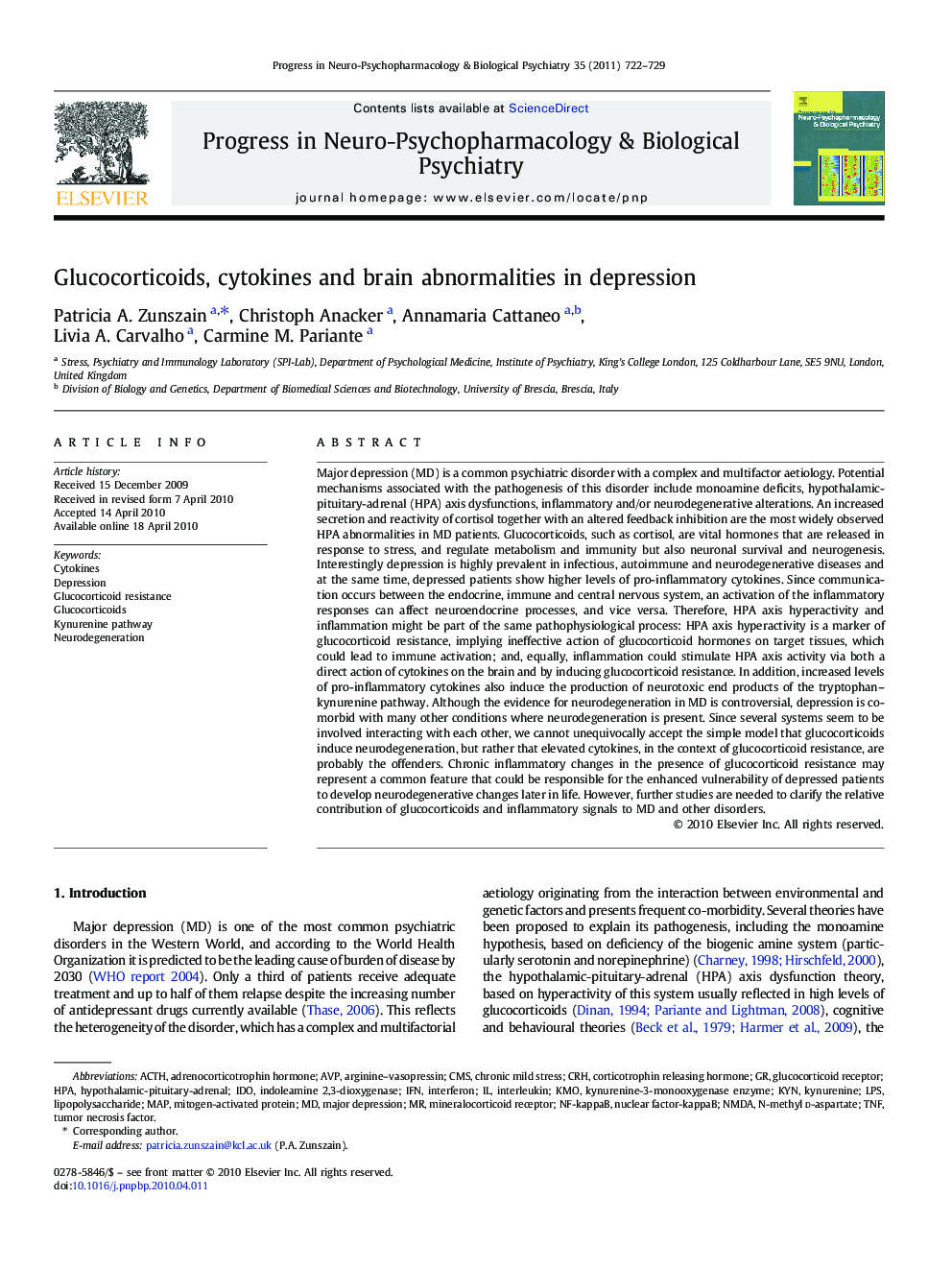| کد مقاله | کد نشریه | سال انتشار | مقاله انگلیسی | نسخه تمام متن |
|---|---|---|---|---|
| 2565469 | 1128059 | 2011 | 8 صفحه PDF | دانلود رایگان |

Major depression (MD) is a common psychiatric disorder with a complex and multifactor aetiology. Potential mechanisms associated with the pathogenesis of this disorder include monoamine deficits, hypothalamic-pituitary-adrenal (HPA) axis dysfunctions, inflammatory and/or neurodegenerative alterations. An increased secretion and reactivity of cortisol together with an altered feedback inhibition are the most widely observed HPA abnormalities in MD patients. Glucocorticoids, such as cortisol, are vital hormones that are released in response to stress, and regulate metabolism and immunity but also neuronal survival and neurogenesis. Interestingly depression is highly prevalent in infectious, autoimmune and neurodegenerative diseases and at the same time, depressed patients show higher levels of pro-inflammatory cytokines. Since communication occurs between the endocrine, immune and central nervous system, an activation of the inflammatory responses can affect neuroendocrine processes, and vice versa. Therefore, HPA axis hyperactivity and inflammation might be part of the same pathophysiological process: HPA axis hyperactivity is a marker of glucocorticoid resistance, implying ineffective action of glucocorticoid hormones on target tissues, which could lead to immune activation; and, equally, inflammation could stimulate HPA axis activity via both a direct action of cytokines on the brain and by inducing glucocorticoid resistance. In addition, increased levels of pro-inflammatory cytokines also induce the production of neurotoxic end products of the tryptophan–kynurenine pathway. Although the evidence for neurodegeneration in MD is controversial, depression is co-morbid with many other conditions where neurodegeneration is present. Since several systems seem to be involved interacting with each other, we cannot unequivocally accept the simple model that glucocorticoids induce neurodegeneration, but rather that elevated cytokines, in the context of glucocorticoid resistance, are probably the offenders. Chronic inflammatory changes in the presence of glucocorticoid resistance may represent a common feature that could be responsible for the enhanced vulnerability of depressed patients to develop neurodegenerative changes later in life. However, further studies are needed to clarify the relative contribution of glucocorticoids and inflammatory signals to MD and other disorders.
Journal: Progress in Neuro-Psychopharmacology and Biological Psychiatry - Volume 35, Issue 3, 29 April 2011, Pages 722–729